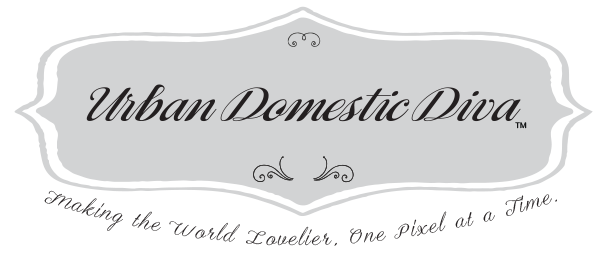1: Women are better multitaskers, men are more focused
2: Women get emotional (we biologically have bigger tear ducts!), men are pragmatic
3: Women are better at details, men are about the big picture
4: Women research, then go for it- men trust their gut and go for it
5: Women listen & talk more, men talk less and are more direct
6: Women read (books, research, body language), men just “do”
7: Women mentor, men direct
Below is that interesting article I mentioned…
Women Vs. Men: Who’s Better At Business? From Forbes.com
Matthew Kirdahy, 05.28.08, 5:35 PM ET
Gender science tells us that women are more likely than men to remember they even read this story. In Leadership and the Sexes: Using Gender Science to Create Success in Business, Michael Gurian and Barbara Annis offer decades of experience so we can decide who is better at what in the business world.
But it turns out that it’s not a question of better, just different.
“I think what we’ve been able to prove over the last 20 years is that there is not superiority or inferiority,” said co-author Gurian, who also wrote the best-selling The Wonder of Boys.
Leadership and the Sexes, published by Jossey-Bass, combines Gurian’s use of brain science in gender studies and Annis’ years of experience consulting top international companies on gender concerns. Annis adds real-life examples of what’s happening in business leadership.
Forget about individuals for a second, and observe everyone just as male or female on the job.
According to the book, due out in August, men are more apt to zone out in a meeting since their brains are designed to enter a “rest state” more easily than women. In that same meeting, women may run off topic before returning to the task at hand because they’re born multi-taskers.
Gurian talked to Forbes.com about how the book digs deeper into these differences and offers tips on improving communication, negotiations and leadership in the workplace based on the gender balance.
Forbes.com: Other than just years of practical experience, what type of research needs to be done to write a book on this sensitive subject matter?
Gurian: I’ve been in a number of corporations. That’s relatively anecdotal. [Barbara Annis] has done formal diagnostics and her corporation (Barbara Annis & Assoc.) has done over 2,000 workshops at corporations.
The brain science of the book is obviously the bedrock, and that’s my 20 years of that. Then my personal, anecdotal and then the book research, the scholarly research on what’s already out there. There are other reports already out there–women in leadership books, authentic leadership books–there’s a lot out there to see if I could match it with gender.
Then Barbara Annis’ workshops and all the anecdotal research she’s brought in … What I did is I basically wrote a book that brought together everything I could find that showed when you use brain-differences information, here’s the positive effect on people and on corporations.
What do you mean when you say that this gender science is a bottom-line issue?
There are two ways in which I’ve seen this happen. One thing, if you look at the endorsement blurb for Brooks Sports–I was working with them, and they saw immediately that when the folks learned about the brain differences, the workplace comfort increased, the power of that workplace increased. They understood, as leaders, how to help their sales teams. Help men market to women and women market to men. That’s an example of where it started with the HR level and the CEO level and trickled through.
Another example: Barbara and her corporation and others went into Deloitte & Touche about 10 years ago [to teach] the brain differences … the differences between males and females. In that case, their bottom line was affected by retention. They retained talent. [We] give that example in there of the $109 million that they claim they’re saving by retaining these people, especially women …
A third way to look at it is in the IBM way. They are a sort of a combination of both. They develop mentoring systems. They taught people male-female brain difference. And they made changes in both. They increased the diversity in their small business and market ability so they sold more products. They also retained more people.
Who will benefit most from the information in this book? Could it be of any special use to, say, hiring managers? While they can’t discriminate, could they use this information when considering the right candidate for a job?
I know that that’s how my teaching is used, and I know that what happens is folks absorb this. And HR people are very smart, they just haven’t seen this information. Once they get this information, they’ll say OK, No. 1, who am I going to hire? It’s not they’re discriminating–it just becomes something intuitive.
When they’re assessing people, they’re intuitively now assessing for things like how will this man work with this female team. If I want to hire this man, because I really love what he brings, how do I need to train him to work with this female team and vice versa? How will this female work with this male team? I want to hire her, [but] she might be overreacting to the things men do, or the men might be overreacting to the women. How do I train them to get over that so people don’t leave a year from now?
I think it’s absorbed, and it becomes intuitive, and then it’s also specifically about addressing gaps that we all have. We walk into our marriages with a gap. How does this woman work? How does this man work? I sort of see this as a part of the evolution of the human being, and they come to a workplace and the HR person becomes a part of their growth by providing them with these assets.
How truly different are men and women in business? Is one gender built to be a better business leader than another?
Not better. I think what we’ve been able to prove over the last 20 years is that there is not superiority or inferiority. It’s different. That can be broken down. Like negotiation–no matter where we go in the world, and we want to remember that the research that I put in my book is worldwide. This is hard science.
All over the world when you test men and women for facial cue recognition, women test … better. It’s a negotiation tool. This is an example where if you say to yourself–if you’re a man, and you say, “Hey, I know everything. I walked into this negotiation, there’s like $50 million at stake, I’ve got it wired.” But you’re not really great at reading facial cues–and especially if you’re one of these high-powered competitive guys who’s not very good at reading facial cues. You really want to team up with a woman leader and go into the negotiation as a male-female team, because she’ll bring many assets, but one may be that she’s better at reading facial cues than you are.
We have this example of a $50 million mistake. The guys thought they nailed it because they presented the data, but their female partner said, “no, no, no. Those two CFOs they needed more info.” The guys didn’t believe her, but she was reading facial cues that they couldn’t read. They didn’t believe her and they lost the deal.
As a man or a woman, what gender would you prefer being on the other side of the negotiation table?
Well, one wants to be ready for anything, and so of course the teams that you face are going to be men and women. Statistically, you’re going to face more men than women when you’re negotiating because more men are at the very top right now. But you’re still going to face some women too. The idea is to put together a team, not only to develop your own personal assets.
It’s about the self, the individual man or woman gaining more strength. It’s about them valuing the areas where they are strong. Then it’s about them creating gender partnerships between men and women so that they are getting the assets of both sexes.
This facial cue thing is an example. We are not going to next year produce as many men who are as good at reading facial cues as women because the brain differences are too profound.
The old idea of we’ll change each other–we’re saying, “Well hey, that’s how we’re losing all this talent and all this money. Let’s look at the natural assets.”
Take Sen. Hillary Clinton as an example of these natural leadership assets. She tends to possess the skills of both it seems, especially in competition.
Now, Hillary Clinton is a great example of sort of both. I was going to say that men and women both compete and bond, they just do it differently. Hillary Clinton, as I see her–of course I’m just observing her through the media, I don’t know her personally–I see a woman who is really caught. She is competing as a woman. She is authentic, but she’s cutting off from herself some assets because she’s trying to compete like a man.
When she cried and really touched those people in New Hampshire–if I were advising her I would say, do more of that. That’s authentic to you and that really touches people, but she’s caught. A woman right now running for office is caught. Especially running against a guy who is so dynamic. You’re constantly playing defense because [Obama’s] speaking skills are so incredible.
A lot of women will be sort of “competitive like a guy” in the workplace, but then when they go home, they realize that’s not fully authentic for them. They would like to have a more expansive or more authentic relationship in the workplace around competition. And they can help because they go home. Then they meet with their friends and then they’re not very competitive. So the workplace is trying to alter women, and some of that’s great. I think we need to compete.
I think our vision is that the workplace that wants to retain women and save those hundreds of millions of dollars also has to understand how women compete and how they bond and it is different.
We have this story in the book of this woman who was under a lot of stress and she cried. The guy said, “Oh, you’re weak.” Well, when they go through this training, they read this and go, “Wait a minute–that’s how she is actually being powerful.” It brings people to her. It helps people understand her, and she’s still closing just as many deals as the guy. Female tear glands are 60% larger than male [tear glands], so women are going to tend to cry more.
Who would you rather work for, a man or a woman?
I’ve had both. I like both. I just have to go into any experience, obviously treating everyone as an individual, but saying the conversations with woman will probably be longer. I have to be more patient because their magic is going to come through them verbalizing more and connecting more dots. With men, I have to generally say, the conversations will be a little shorter, the meetings with be a little shorter. We’re going to cut to the chase a little quicker. So some things won’t get discussed, but we’re going to go for the end product more quickly. I think there are benefits to both.
- Sugar-Free, Low-Carb, Olive Oil Chocolate Hazelnut Tart - February 18, 2023
- Easy Slow Cooker French Onion Soup - November 28, 2022
- Recipe: Chicken Vindaloo with Whole Foods Vindaloo Curry Powder - January 22, 2022




